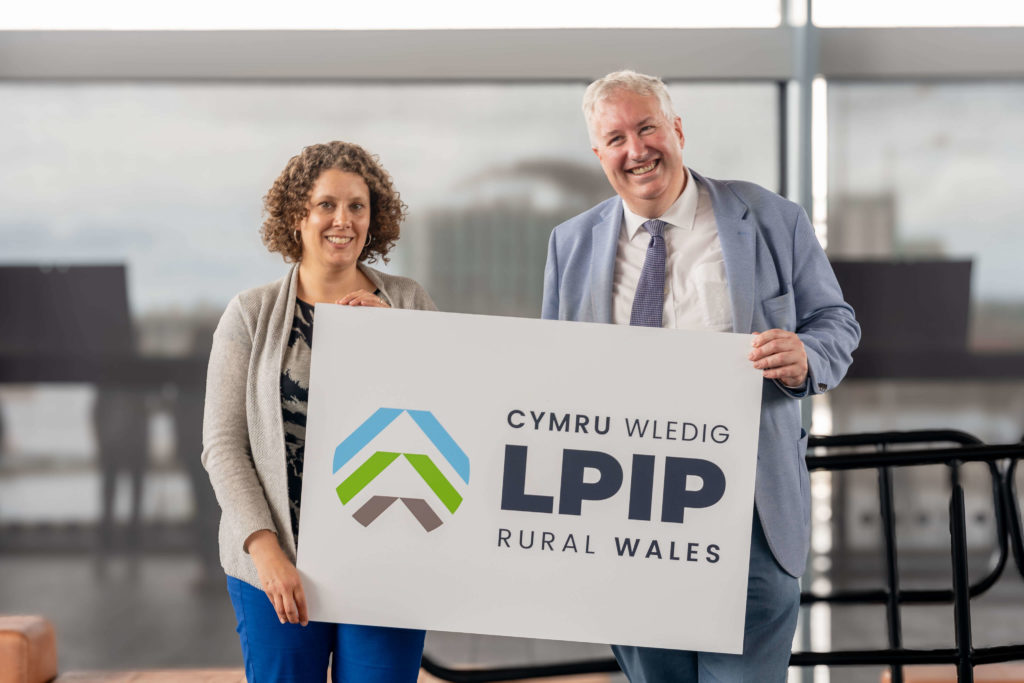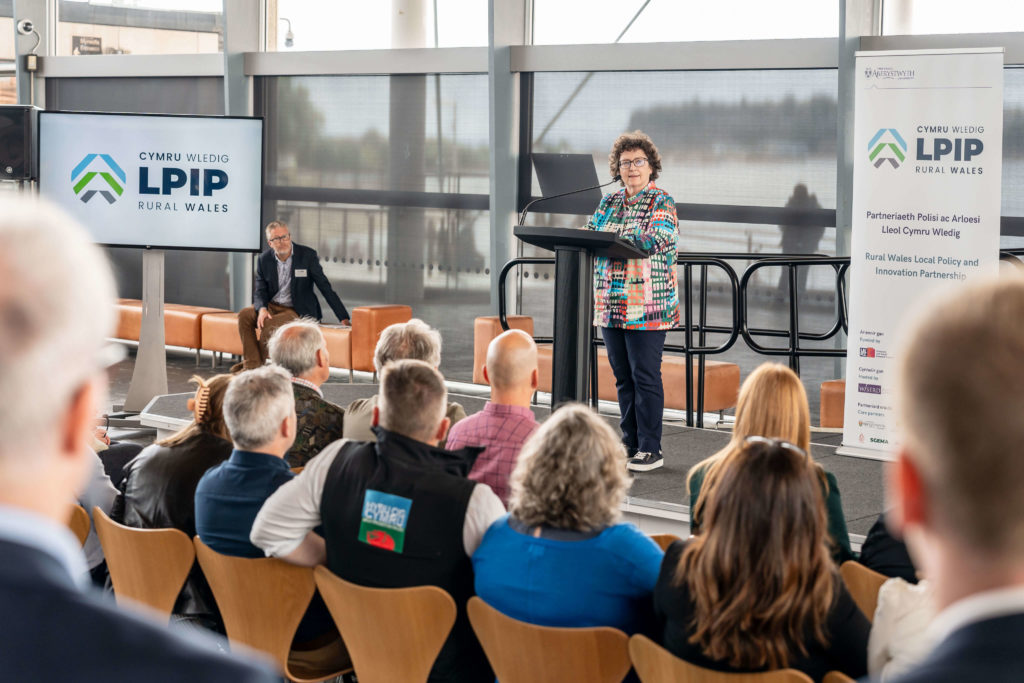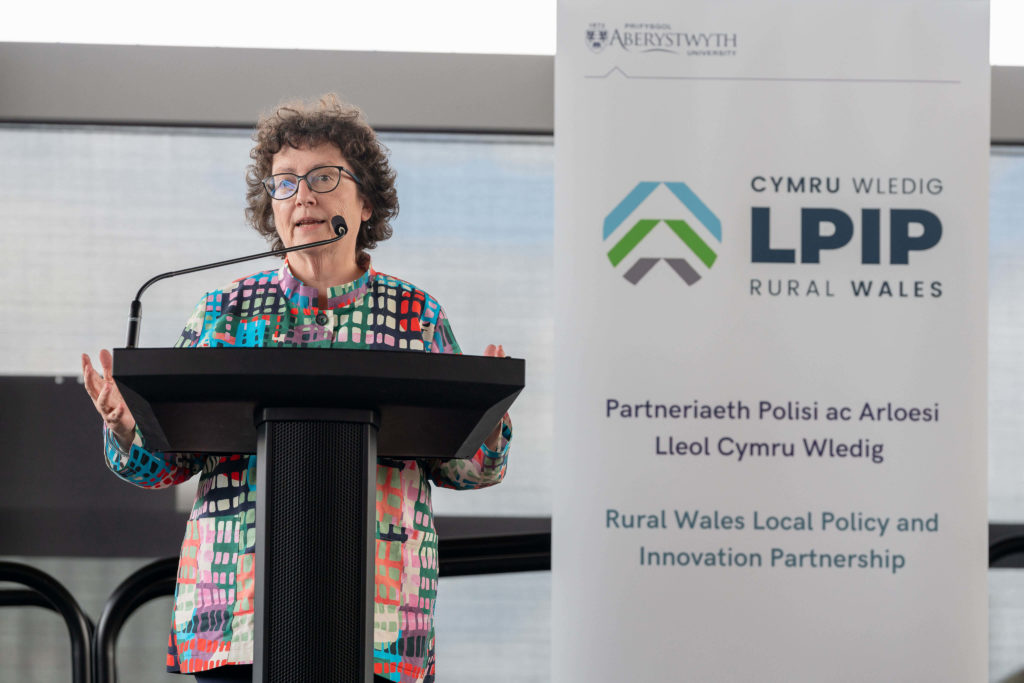
Elizabeth Goodyear writes about the Cymru Wledig LPIP Rural Wales launch and the partnership’s themes.
On 10th July, I attended the launch of the Cymru Wledig LPIP Rural Wales, the Rural Wales Local Policy and Innovation Partnership (Rural Wales LPIP) at the Senedd. The event brought together academics, policymakers, business leaders, and community representatives, all united by a common goal: to address the multifaceted challenges facing rural Wales through innovative research and collaboration.
Rural Wales LPIP is a collaborative initiative led by Aberystwyth University, Bangor University, Cardiff University, and the Countryside and Community Research Institute at the University of Gloucestershire. Supported by the UK Research and Innovation (UKRI), this £5 million, three-year project aims to leverage research and innovation to tackle the pressing issues in rural Wales.
During the event, several speakers, including the Rt. Hon. Elin Jones MS, highlighted the pressing issues confronting Rural Wales which faces numerous challenges that require attention. These include economic restructuring, limited employment opportunities, out-migration, housing affordability and loss of local services.
Rural Wales faces persistent poverty, housing challenges, inadequate infrastructure, and the loss of public and commercial services, while family farms face uncertainty and Welsh-speaking communities see declining numbers. As climate change impacts grow, the region must navigate land use decisions for Net Zero yet faces constraints in public authority capacity and economic models, hindered by outdated and insufficient data. The Rural Wales LPIP aims to address these challenges by connecting knowledge, policy, and practice to create a wellbeing economy in Rural Wales.

The Rural Wales LPIP’s work is structured around four key themes:
Building a Regenerative Economy: Focused on promoting inclusive and sustainable economic development, this theme addresses issues such as low productivity, the ‘missing middle’ of businesses, and the retention of young people in rural communities.
Empowering Communities for Cultural Recovery: Exploring innovative approaches to fostering social and cultural resilience, sustaining Welsh-speaking communities, and embedding diverse rural populations in local development.
Enhancing Wellbeing in Place: Concentrating on the financial, physical, social, and emotional wellbeing of rural residents, this theme tackles poverty, inequality, health, housing, and access to services.
Supporting the Net Zero Transition: Focusing on the challenges and opportunities related to the transition to a net zero economy, including changes in land use, renewable energy production, and sustainable practices.

The Rural Wales LPIP is committed to co-production, involving communities in the research process. The initiative has already engaged with five pilot communities: Corwen, Trawsfynydd, the Dyfi Valley, North Pembrokeshire, and Newtown. These communities will work with academic mentors to design and carry out research projects on issues important to them.
The Rural Wales LPIP also includes Innovation Labs, inspired by the Zero Carbon Britain Innovation Lab. These labs will bring together stakeholders to identify and address obstacles to change, test interventions, and implement solutions. Public engagement will be fostered through online seminars, events at the Royal Welsh Show and the National Eisteddfod, and an Online Integrated Evidence Hub for Rural Wales.
The launch of the Rural Wales LPIP marks a new chapter in the effort to build a wellbeing economy in Rural Wales. By integrating research and innovation with community engagement and policy development, this initiative aims to create sustainable and inclusive growth, address long-standing challenges, and enhance the quality of life for rural communities.
For more information about the Rural Wales LPIP and how to get involved, visit their webpage and follow them on Twitter at @LPIPCymruWledig.
This blog was written by Elizabeth Goodyear, Programme Manager at City-REDI, University of Birmingham.
Find out more about the Local Policy Innovation Partnership Hub.
Disclaimer:
The views expressed in this post are those of the author and not necessarily those of City-REDI or the University of Birmingham.
